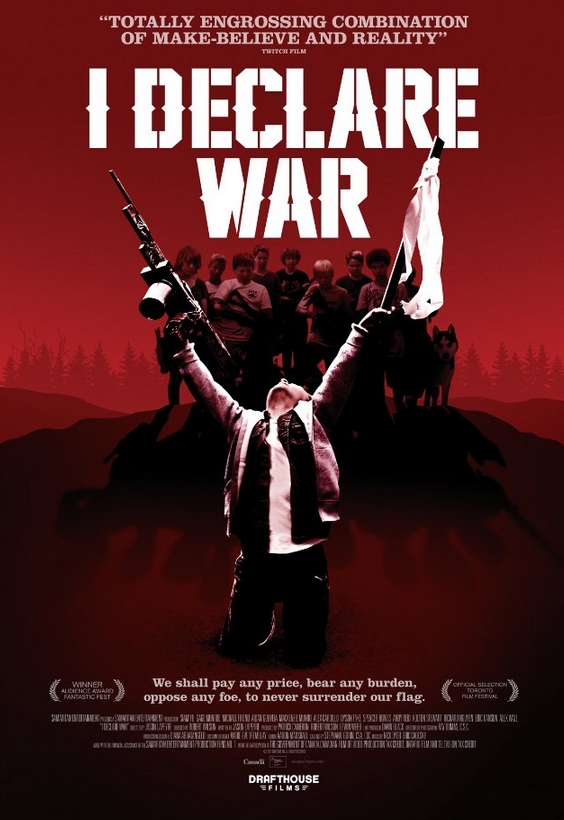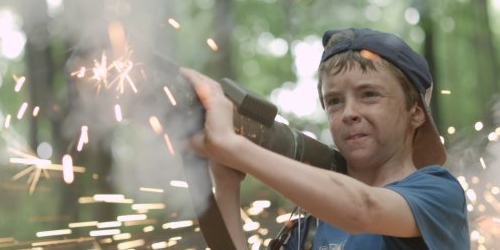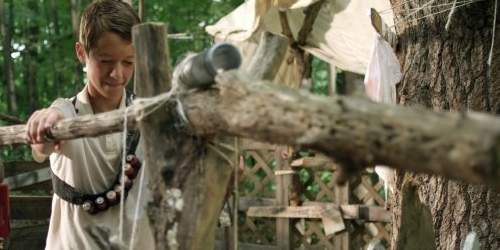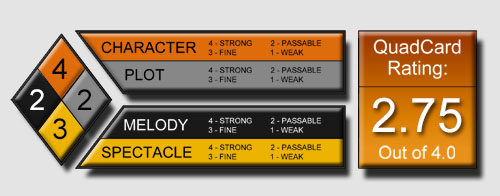 Nearly a century ago J.M. Barrie wrote “Nothing that happens after we are twelve matters very much”. Further, Peter Pan was the literary embodiment of the idea that we all want to stay young. And why wouldn’t we? Being a kid allowed us to do things and live lives free of the pressures, strains, and dangers of the real world. All we had to do was be ourselves…yet the ironic thing was that being ourselves had us imagining what it would be like to be doing grown up things. How naive we were. But what Barrie really hit on was that our imaginations could be our greatest strength – a source of limitless powers.
Nearly a century ago J.M. Barrie wrote “Nothing that happens after we are twelve matters very much”. Further, Peter Pan was the literary embodiment of the idea that we all want to stay young. And why wouldn’t we? Being a kid allowed us to do things and live lives free of the pressures, strains, and dangers of the real world. All we had to do was be ourselves…yet the ironic thing was that being ourselves had us imagining what it would be like to be doing grown up things. How naive we were. But what Barrie really hit on was that our imaginations could be our greatest strength – a source of limitless powers.
So enter Jason Lapeyre‘s fanciful tale that finds a group of 12 year-olds engaging in an epic game of capture the flag. His film showcases what kids at this age do  best further proving that Barrie had it right on the nose. Twelve is the finite age where kids can both remain innocent, and also be afforded one last hurrah before becoming teenagers. True to form, the kids in Drafthouse Films’ I Declare War dream of being adults yet they don’t pretend to be astronauts, or archaeologists. No, they dream about war games and blowing shit up. The film revolves around their most important forest-based games, but this one the gets out of hand as the lines between make-believe and reality begin to blur. Their quest for victory pushes the limits of their friendship, and each is shown a glimpse of humanity’s dark side.
best further proving that Barrie had it right on the nose. Twelve is the finite age where kids can both remain innocent, and also be afforded one last hurrah before becoming teenagers. True to form, the kids in Drafthouse Films’ I Declare War dream of being adults yet they don’t pretend to be astronauts, or archaeologists. No, they dream about war games and blowing shit up. The film revolves around their most important forest-based games, but this one the gets out of hand as the lines between make-believe and reality begin to blur. Their quest for victory pushes the limits of their friendship, and each is shown a glimpse of humanity’s dark side.
If Wes Anderson’s Moonrise Kingdom showed us how an artsy pre-teen Summer might play out, I Declare War is likely how an adrenaline-fueled childhood Summer – by way of John McTiernan – might play out. Coming-of-age movies are in high supply this year, but it’s nice to see a film that shows kids just being kids. Not that there’s anything wrong with something like The Way Way Back, but a film like this succeeds in part because it needn’t be focused around a defining event, or Summer fling, or job that catapults kids into adulthood.
The rules of I Declare War are simple; they are spelled out in a very cute manner of exposition in place of what would be normal opening credits. The leader of one team, PK (Gage Munroe), is young but it’s evident he’s a born leader. He’s so obsessed with war he wins every game, although he may have learned a thing or two from his multiple viewings of Patton. PK has such a likable quality about him. He may be pint-sized, but he continually owns every scene that finds him spouting tactical plans that seem culled from multiple viewings of Patton. Wise beyond his years, in one scene he’s asked a ludicrously childish “would you rather” hypothetical and in an off-the-cuff manner retorts with a dead-pan, “Why would I have to pick between two choices when I can figure out a way to have both?”. Yup, that’s the kind of leader he is, and the reason everyone takes orders from him.
PK and his opponent, Quinn (Aidan Gouveia), have battled many times. But this game is different as Quinn falls victim to a coup staged by one of his troops – once you’re “dead”, you go home. With Quinn out of the way, Skinner (Michael Friend), having sufficiently snapped, changes the rules of the game and doing so puts everyone’s lives in danger. Taking cues from famous war films like Platoon, Skinner is to PK what Tom Berenger’s Barnes was to William Dafoe’s Elias. As such, I Declare War takes similar situations. Rivalries and threats are grafted onto the kiddie stuff and the result of which adds depth, legitimacy and a mature edge to the story and its characters. So much so that even the lone female soldier Jess (Mackenzie Munro) is a danger. She has an interest in the war (well, she’s really just interested in Quinn) but don’t be fooled, she too can hold her own. She’ll use her feminine charm, along with chess-based strategies, to her advantage about as well as she handles her crossbow.

Be assures, there are no real weapons in this war, just sticks and paint-filled water balloons. Yet, to a kid with a powerful imagination, anything can become a heavy assault weapon. The switch from their wooden weapons to legitimate ones is seamless and help us slip into Lapeyre’s world as easily as the kids do. A point of distinction though, these kids don’t just play. They live this game, and every element helps make it feel more real. Even if everything is based on a 12 year old’s sense of superficial world views, there are surprisingly deeper themes and ideas, like loyalty, friendship, even religion. We see how the kids react to someone getting drunk with power, or just go mad in response to the stress and pressures of war. When it starts to get too advanced, the film does re-center itself. The kids deal with tough issues, but they do so on their terms. For instance, they take prisoners yet their means of interrogation are nothing more than childhood standbys like Indian burns and a swift Charlie horse. Lord of the Flies this is not.

That said the challenges faced and presented are still numerous. Like a microcosm of both school-age issues (friendship strife, first loves and acceptance) and mature ones (greed, power, corruption), it’s presented like a cross-section of society. Well, they say that children are our future, so there you go, right? This story about kids unknowingly dealing with real world issues while trying to have fun shouldn’t be expected to solve the world’s problems. But stating that these issues exist makes this one fine moral parable.
G-S-T RULING:
PK tells his troops many things that show his maturity and command of what’s going on. Each order, quip or comment, like “You can’t stop a war for juice!” strike a perfect balance between showing the depth of the story but also reminding us that this is a film about kids at play. It’s very nearly self-aware, and so many of the film’s themes resonate making it more interesting than its simple premise. For what it sets out to do, I Declare War succeeds. Still, this seems like a story extrapolated from a short film; it aspires to be a feature but there’s not enough material to make it the full 90 minutes. That said, I Declare War works way more than it doesn’t, and, like war, comes down to the last man standing to really determine the winner.

